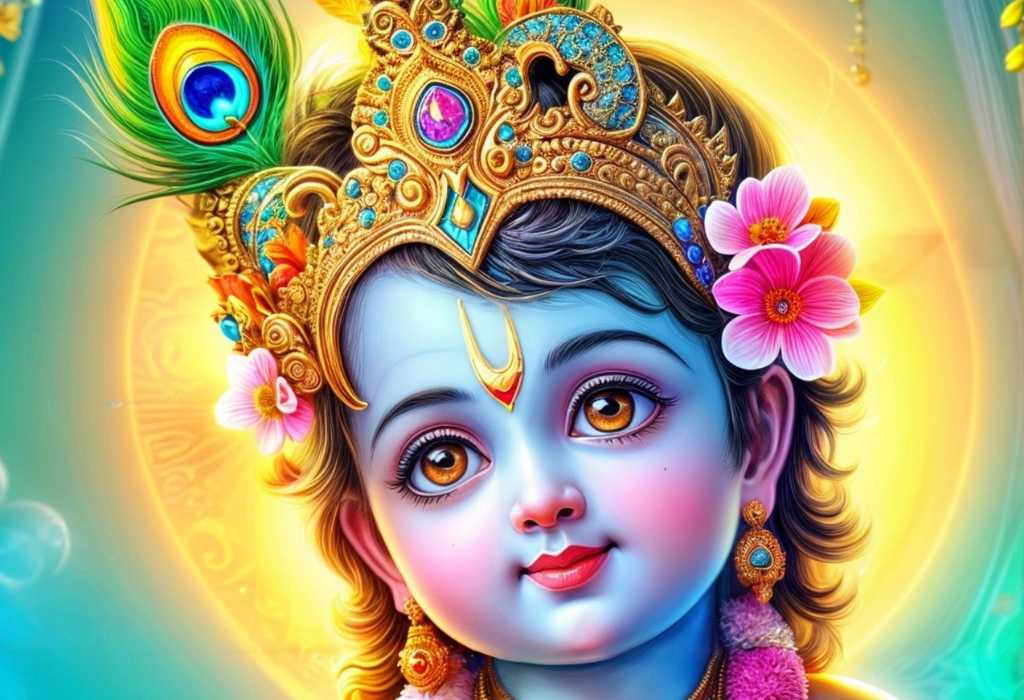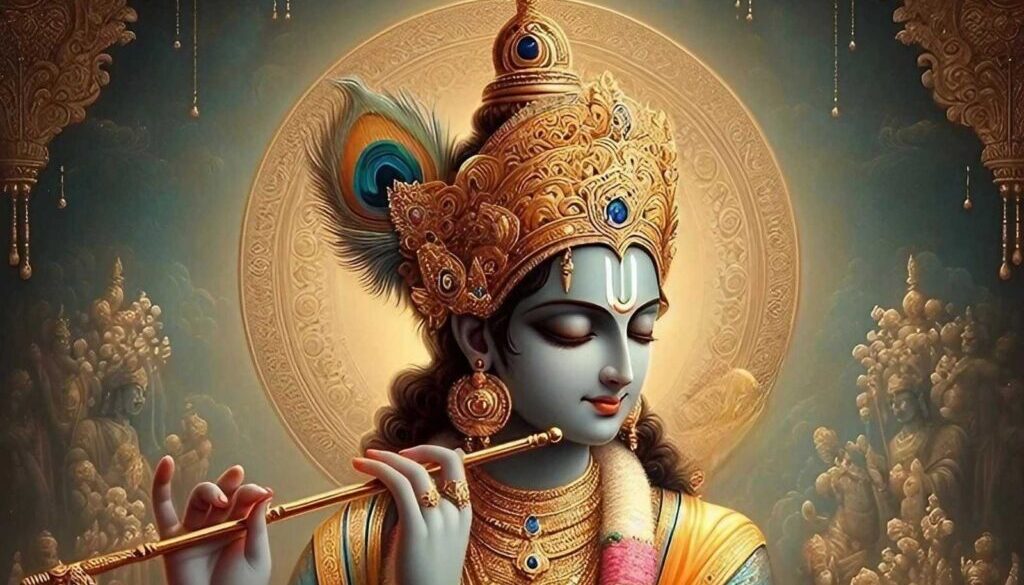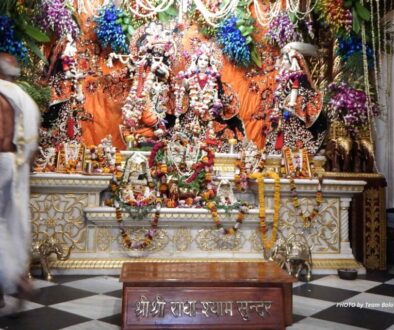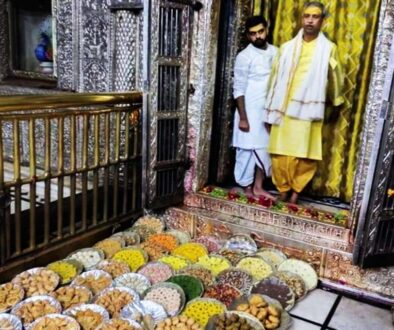The Spiritual Essence of Fasting on Krishna Janmashtami
Krishna Janmashtami, an esteemed festival in Hinduism, celebrates the divine birth of Lord Krishna, the eighth avatar of Vishnu. This sacred day is filled with joyous celebrations, elaborate rituals, and fervent devotion. Among the numerous traditions observed, fasting stands out as a central and spiritually enriching practice. This blog post delves into the spiritual essence of fasting on Krishna Janmashtami, exploring its significance, various forms, and the deeper spiritual meanings associated with this practice.
Understanding Krishna Janmashtami
Krishna Janmashtami, often referred to simply as Janmashtami, is celebrated on the 8th day (Ashtami) of the Krishna Paksha (dark fortnight) of the month of Bhadrapada in the Hindu lunar calendar, which usually falls in August or September. This festival marks the birth of Lord Krishna, a divine figure revered for his teachings, divine play, and extraordinary life.
Historical Significance of Krishna Janmashtami
The story of Krishna’s birth is a poignant tale. Krishna was born to Devaki and Vasudeva in the city of Mathura, under the oppressive rule of King Kamsa. It was prophesied that Devaki’s eighth son would bring about Kamsa’s downfall. To thwart this prophecy, Kamsa imprisoned Devaki and Vasudeva and had all their children killed at birth. However, Krishna’s divine birth was marked by miracles, and He was safely transported to Gokul to be raised by Yashoda and Nanda.
Krishna’s life is celebrated for His divine exploits and teachings. The Bhagavad Gita, a sacred text that captures Krishna’s dialogue with Prince Arjuna, is a cornerstone of Hindu philosophy and spirituality. Krishna’s teachings emphasize righteousness, devotion, and the path to spiritual enlightenment.

The Spiritual Practice of Fasting
Fasting on Krishna Janmashtami is not merely a dietary restriction; it is a profound spiritual discipline that aligns the body and mind with higher spiritual goals. This practice is imbued with symbolic and transformative significance.
The Purpose of Fasting on Krishna Janmashtami
Fasting serves several spiritual purposes on Krishna Janmashtami:
-
Purification: By abstaining from regular food and drink, devotees engage in a form of physical and mental purification. This practice is believed to cleanse the body of toxins and the mind of distractions, preparing it for deeper spiritual engagement.
-
Focus and Devotion: The act of fasting helps devotees concentrate their thoughts and energy on Krishna. It provides an opportunity to engage more fully in devotional practices such as chanting, prayer, and meditation.
-
Symbolic Sacrifice: Fasting symbolizes a personal sacrifice and surrender to the divine. It reflects the devotee’s willingness to forego material comforts in favor of spiritual growth and connection with Krishna.
Types of Fasting Observed
Devotees may choose from various forms of fasting based on their health, devotion, and personal preference. Each type carries its own spiritual significance:
-
Nirjala Vrat (Complete Fast): This form of fasting involves abstaining from both food and water. It is considered the most rigorous form of fasting and is observed by devotees who wish to demonstrate intense devotion and self-discipline.
-
Fruitarian Vrat: This type of fast allows the consumption of fruits and milk. It provides essential nutrients while still adhering to the spirit of the fast.
-
Partial Fasting: This involves consuming only one meal during the day, often before sunset. It is a more flexible approach, suitable for those who may not be able to sustain a complete fast.
Spiritual Benefits of Fasting
Fasting on Krishna Janmashtami offers numerous spiritual benefits, contributing to both personal and communal growth.
Purification of the Mind and Body
Fasting initiates a process of physical detoxification and mental cleansing. The body experiences a respite from regular digestion processes, allowing it to focus on healing and rejuvenation. Simultaneously, the mind is cleared of everyday concerns and distractions, making it more receptive to spiritual practices. This purification aligns the devotee with a higher spiritual vibration and enhances their capacity for devotion.
Enhanced Focus and Devotion
The discipline required to fast fosters a heightened sense of focus and dedication. By consciously abstaining from food, devotees channel their energy and concentration towards spiritual activities. This intensified focus aids in deepening the devotional experience, enabling a stronger connection with Krishna. The practice of fasting thus serves as a catalyst for increased spiritual engagement and awareness.
Strengthening Devotional Bond
Fasting on Krishna Janmashtami reinforces the devotee’s bond with Krishna. It is an act of love and reverence, reflecting a deep commitment to honoring the divine presence. The personal sacrifice involved in fasting is seen as an expression of devotion, making the worship experience more intimate and meaningful. Through this practice, devotees cultivate a closer relationship with Krishna and express their dedication to His teachings.

Rituals Associated with Fasting on Krishna Janmashtami
Pre-Fasting Preparations
The preparation for fasting begins a day before Krishna Janmashtami. Devotees engage in a series of ritualistic and preparatory activities:
-
Cleaning and Decoration: Homes and temples are cleaned and decorated with flowers, lights, and other adornments. This act signifies the purification of the physical space in honor of Krishna.
-
Preparing Offerings: Devotees prepare various offerings for Krishna, including fruits, milk, and sweets. These offerings are meant to be presented to Krishna during the ceremonial rituals.
Observing the Fast
On Janmashtami, devotees start their fast early in the morning. The day is filled with devotional activities:
-
Prayer and Meditation: Devotees engage in prayers, meditations, and the recitation of devotional texts. This spiritual practice helps maintain focus and devotion throughout the day.
-
Bhajans and Kirtans: Singing devotional songs and participating in kirtans (chanting) are integral parts of the celebration. These activities create an atmosphere of devotion and joy, enhancing the spiritual experience.
Breaking the Fast
The fast is traditionally broken at midnight, coinciding with the time of Krishna’s birth. The ceremony involves:
-
Aarti (Waving of Light): An elaborate Aarti is performed, where Krishna’s idol is adorned with new clothes and decorations. Devotees offer prayers and light lamps in honor of Krishna’s divine presence.
-
Offering Prasad: After the Aarti, the food prepared earlier is offered to Krishna. This sanctified food, known as prasad, is then shared among devotees, symbolizing the divine blessings of Krishna.

The Impact of Fasting on Devotees
Personal Transformation
Fasting often leads to significant personal transformation. The discipline and self-control required for fasting cultivate qualities such as humility, patience, and resilience. Many devotees find that the experience of fasting enhances their spiritual understanding and fosters a deeper connection with Krishna. This personal growth is accompanied by a sense of inner peace and fulfillment.
Strengthening Community Bonds
Krishna Janmashtami celebrations bring together families and communities. Fasting and participating in communal rituals create a sense of unity and shared devotion. The collective experience of celebrating Krishna’s birth strengthens social bonds and fosters a spirit of cooperation and mutual respect.
Spiritual Growth
Fasting on Janmashtami contributes to spiritual growth by aligning the devotee’s actions with higher spiritual principles. The practice of fasting encourages introspection and self-evaluation, allowing devotees to reflect on their spiritual journey and make meaningful progress. It provides an opportunity to deepen one’s understanding of Krishna’s teachings and integrate them into daily life.
Conclusion
Fasting on Krishna Janmashtami is a profound spiritual practice that encompasses more than just abstention from food. It represents a deep act of devotion, purification, and self-discipline. Through this practice, devotees experience spiritual growth, strengthen their bond with Krishna, and enhance their devotional practices. The ritual of fasting, coupled with the celebrations and communal activities, transforms Krishna Janmashtami into a deeply meaningful and spiritually enriching occasion.
By understanding the spiritual essence of fasting on Krishna Janmashtami, we gain insight into the broader significance of this practice and its impact on our lives. Whether observed through complete abstention, partial fasting, or fruitarian practices, fasting serves as a powerful means of connecting with the divine and embracing the teachings of Lord Krishna.




